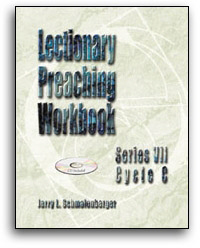SermonStudio
Trinity Sunday
Preaching
Lectionary Preaching Workbook
Series VII Cycle C
Seasonal Theme
Jesus' acts of compassion and teaching ministry.
Theme For The Day
Jesus has sent a Paraclete we can ask for help, inspiration, and presence.
Old Testament Lesson
Proverbs 8:1-4, 22-31
Wisdom At Creation
Jesus' acts of compassion and teaching ministry.
Theme For The Day
Jesus has sent a Paraclete we can ask for help, inspiration, and presence.
Old Testament Lesson
Proverbs 8:1-4, 22-31
Wisdom At Creation


